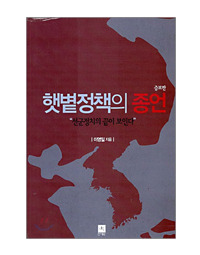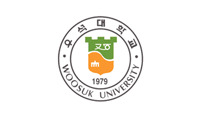Which Korea will the world support?
Lee Young-il (President of Korea-China Cultural Association)
How does the international community see the only divided nation in the world today? Occupying the northern part of the Korean Peninsula, North Korea has been brought under sanctions by United Nations Security Council Resolution 1874 after its second nuclear test and random shots of missiles in May last year. All of its sea and air transportation means are subjected to inspections on suspicion of arms exports. The North Korean weapons bound for the Middle East and Thailand have been seized.
In contrast, the Republic of Korea on the southern half of the peninsula won a mega contract to export nuclear power generation plants worth $40 billion to the United Arab Emirates -- just half a year after the U.N. resolution was adopted against North Korea.
South Korea currently ranks fifth among nuclear energy producing states and is regarded as one of the countries with the highest prospects for export. Its atomic power plants are widely known for their advanced safety levels. South Korea's potential customers include China which needs to order 50 nuclear power plants in the near future, and Turkey and Middle East countries which are also showing keen interest in constructing nuclear power generators.
(이명박대통령과 파틸 인도대통령의 만남(2010/01/26)

Despite condemnations from the entire world community, North Korea has consistently pursued the transformation of atomic power into lethal weaponry. It has sacrificed the national economy and the livelihoods of the entire people under the pretext of securing deterrent force against the nonexistent U.S. policy to crush North Korea.
In the meantime, South Korea has now joined the ranks of the most advanced nations in the field of nuclear power generation. Syngman Rhee, the first president of the Republic of Korea, established the Korea Atomic Energy Research Institute and purchased a small nuclear reactor in 1956 even as the country tried to recover from the devastation of the Korean War. This early effort led to the training of many outstanding experts at home and abroad.
When observing the Korean Peninsula from a spectator's seat, we see a country in the north that continues to threaten the peace and its neighbors with nuclear weapons and missiles, despite the fact that it is one of the most poverty-stricken countries in the world.
In contrast, South Korea has become one of the 20 most important states in the world that will play a significant role in improving the global economic situation and promoting green growth as a means of attaining economic growth as well as protecting the environment. In November this year, it will host a G20 summit conference in Seoul.
The North is now on the verge of breakdown due to shortages of raw materials, energy and provisions. Richard Reagan, the representative of the World Food Program of the United Nations, confessed that while most countries become self-reliant after a few years of help, North Korea has failed to feed itself after over 10 years of food aid since 1995. He also commented that donors are becoming fatigued from long-term assistance and support organizations are electing to dedicate their resources to other aids besides food. They now feel forced to devise alternative aid methods such as turning grants into development assistance containing specific repayment dates and plans.
How would North Korea look today if it had poured its passion and resources into the development of food and energy instead of lethal nuclear weapons? How would it look now had it set out to reform and open its doors from 1983 as recommended by China? Although it is said that there is no "if" in history, what are the causes of the state failure which has reduced North Korea from a country that could have easily become well-off to one of the poorest on earth that cannot provide food to its inhabitants without foreign aid and where the exodus of refugees increases?
Professor Robert Rotberg of Harvard University says in "State Failure and North Korea: A Conceptual Framework" that North Korea is rather a weak state than a failed state in light of its nuclear arsenal and strength of internal control. Whether the North has failed or weakened, the cause of all the suffering which North Korean compatriots undergo today lies in Kim Il-sung's "juche ideology" that has governed the country since the Korean War.
Some domestic left-wing scholars often claim that the North's nuclear development is the outcome of the United States' hostile policy against North Korea. I believe such a claim results from the inability to understand the North Korean nuclear issue from historic perspectives. Nicholas Eberstadt, testifying at a U.S. Senate hearing, said that Kim Il-sung consistently believed the "war to reunify our fatherland" had not yet finished and that it would be possible to drive out the U.S. forces from the Korean Peninsula and achieve reunification only when the North achieves some form of capability to attack the continental United States with nuclear warheads.
For this reason, it is correct to assume that the message Kim Il-sung left behind was not to renounce, but to possess nuclear capability. North Korea today blindly follows Kim's precepts as they are. As long as the North Korean Labor Party refuses to confirm Kim Il-sung's death in the belief that he is a being of eternal life, neither Kim Jong-il nor his son Kim Jong-un, who is mentioned as the heir apparent, can become the head of state because Kim Il-sung must remain the only one honored at this level. It seems that the chances of North Korea abandoning nuclear weapons are remote as long as Kim Il-sung's teaching wields influence and his family controls North Korea.
In 1957 Kim Il-sung promised the North Korean people that they would eat white rice with meat soup, wear silk clothes and live in tile-roofed houses. Admitting that his father's will has not yet been properly carried out, Kim Jong-il called on Jan. 11 for efforts to make a big change in people's living standard by expanding light industries and agricultural production.
North Korea could ease the food shortage by importing 4 million tons of rice from Thailand with the expenses for nuclear tests, which cost $300 million each time, and missile test firings which cost $300-400 million. In reality, North Korea has kept ignoring people's suffering and has maintained military-first politics and hereditary rule. However, Kim Jong-il has no qualms in talking as if he had deep concern about people's lives.
No matter how history is defined, I think this nation must be reunified under the initiative of the state that plays a central role in the world's historical progress. How then will the global spectators evaluate South Korea's politics? Do they see South Korea as a country making preparations for reunification or as a country where most people do not care much about reunification, thinking that if we achieve reunification, it is fine but if we don't, it doesn't matter.
I hope that an opportunity for reunification will come if only we manage to upgrade our domestic politics by one notch.
'통일꾼활동 > 통일교실' 카테고리의 다른 글
| 미중정상회담이 한반도에 주는 국제정치적 의미 (0) | 2011.01.24 |
|---|---|
| 출간 3주년 맞는 이영일의 저서 " 햇볕정책의 종언" (0) | 2010.06.20 |
| 세계는 어느 쪽 주도의 통일에 손을 들어줄 것인가? (0) | 2010.01.17 |
| 제2의 분단만은 피합시다 (0) | 2010.01.12 |
| 6자회담에서 북한이 노리는 진정한 목표는 무엇인가. (0) | 2009.12.24 |








